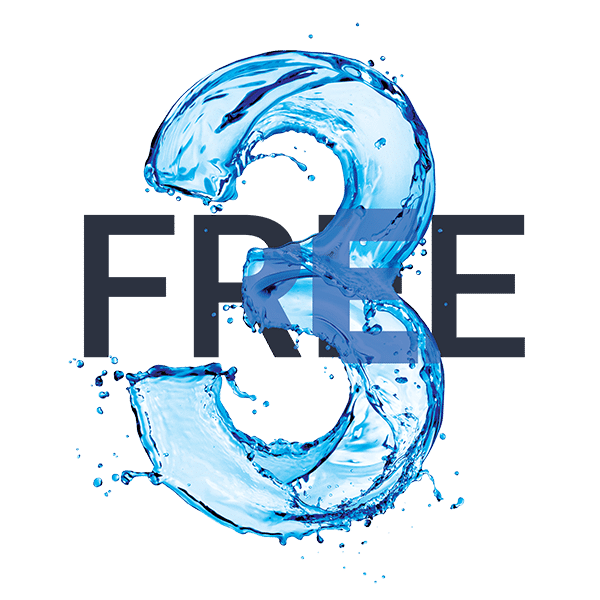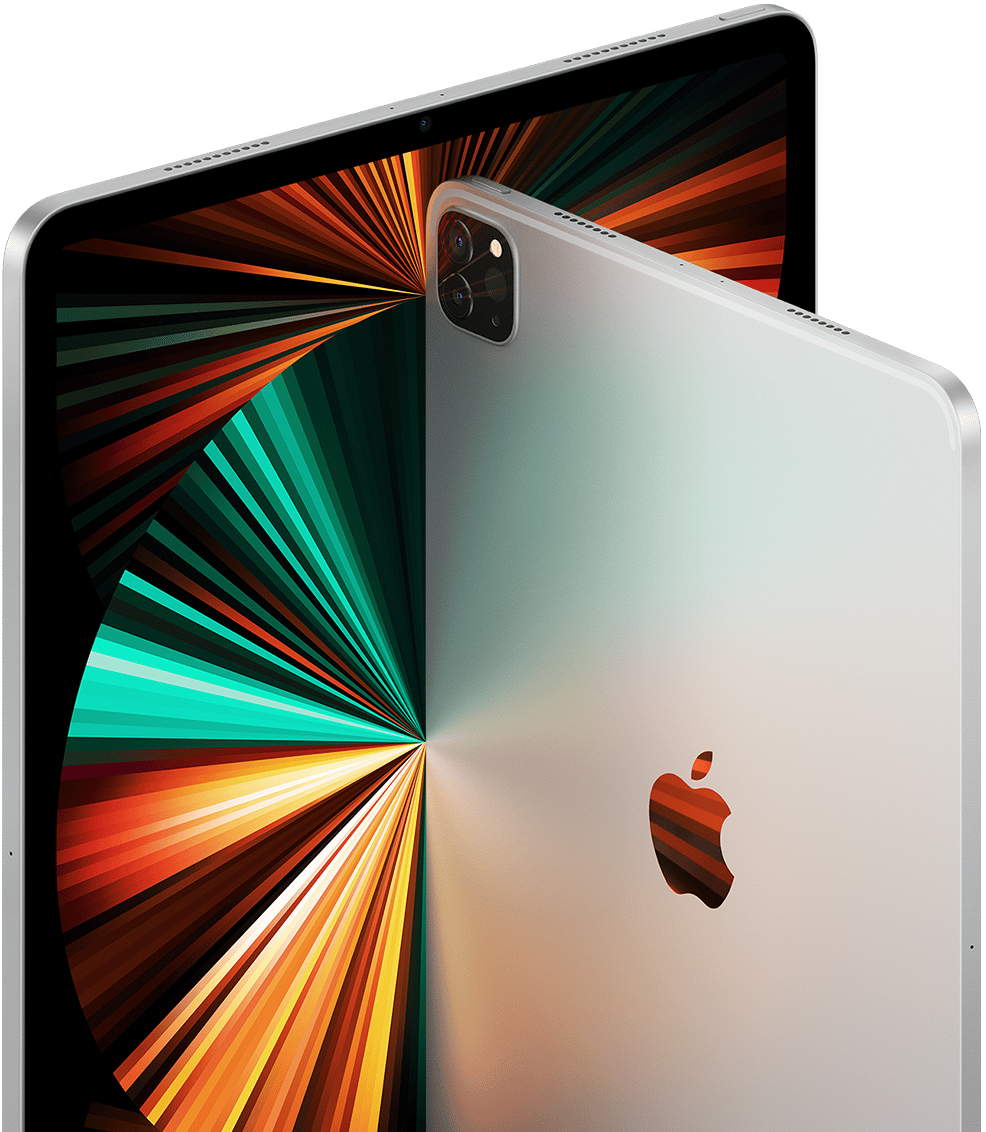What does water conservation mean?
If you’re native to Utah, you’ve likely heard the jingle “
Slow the Flow, Save H2O.” While it’s a catchy little tune, it’s also an extremely important message about one essential, life-sustaining resource: water. Across the US, the average American family currently uses more than
300 gallons of water per day and most people in our country have continual access to clean, safe, usable water.
Even though on the surface it seems that we have an endless supply of fresh water, the world’s water resources are actually limited and need to be protected and conserved. Becoming informed (link back to learning center hub page) on what water conservation is, how to practice it, and how it benefits the planet will help you make smart choices when it comes to your water usage.
How do smart water conservation systems help property managers?
Water conservation is the act of saving the usable fresh water that we have to protect our natural resources. While
71% of the world is covered with water, roughly 97% of that is contained in our oceans and unsuitable for human consumption. Of the remaining available water, roughly 2% is contained in ice caps, glaciers, and permanent snow. This leaves
just over 1% of usable water for everyone on the planet.
Because of our planet’s
natural water cycle, which involves condensation, evaporation, and precipitation, among other things, the usable water we do have is effectively recycled for continuous use. But as water returns as rain, sleet, or snow, it doesn’t always land in the same places as before, which means some areas end up with less water than others. Since there is always limited usable water, water conservation is extremely important for everyone, no matter how much water is in your own surroundings.
Why is a water conservation system important?
Although our water goes through a natural recycling process, it is a finite resource — meaning eventually we could run out of life-sustaining water. Through science and technology, the world has been able to partially bypass the water cycle with
water reclamation, which is the man-made treatment of wastewater to make it reusable again. Because most of our water is in the ocean or locked in ice, reclamation — or water recycling — is vital to making the most of the water we do have.
Every living thing on this planet requires water to survive — plants, animals, insects, humans. Without safe, usable water cannot continue living on this planet. In addition to being a life-giving resource, we need water for a
variety of different things, including:
- Cookings
- Cleaning
- Recreation
- Gardening
- Science
- Pharmaceuticals
- and more
When we don’t have the water we need, life as we know it cannot be the same.
In terms of water conservation, we can use water smartly and protect the limited resource that we need to survive. We can make smart choices to conserve our water, including reducing water waste, preventing damage to water quality, and improving water management.
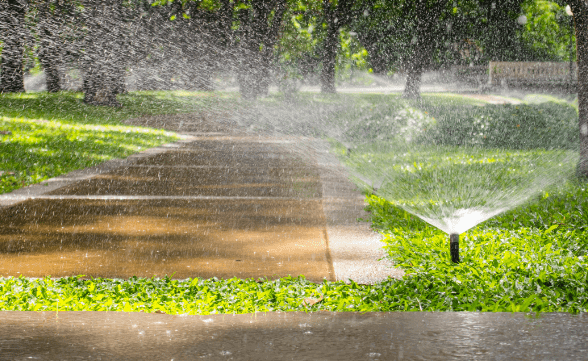
Effects of water waste
Water waste affects our environment in different ways and they are broken down into three categories: anthropocentric, biocentric, and ecocentric. Each type of water waste negatively impacts the planet and our lives.
ANTHROPOCENTRIC
The
anthropocentric effects of water waste focus on how this situation specifically affects humans. Fresh water is a finite resource on Earth and its availability is disproportionately distributed across the globe. While water seems like a never ending resource in countries like the United States, Canada, and other developed countries, there are many countries where people cannot easily access fresh water and they become adversely affected by water scarcity.
Water scarcity refers to the lack of water availability either due to physical shortage, reduced access, or a lack of adequate infrastructure to deliver water. Around 1.2 billion people — roughly
one-fifth of the world’s population — face water scarcity and it is estimated that about 500 million people are on the verge of water scarcity at any given time. Water waste can increase instances of water scarcity and contribute to the lack of fresh water for every person.
BIOCENTRIC
Humans aren’t the only living beings that rely on water to survive.
Biocentric water waste effects analyze how animals and other living things are affected by a lack of accessible water. When we overuse fresh water in anthropocentric settings, it can lead to water scarcity for agricultural use as well as less water in general for animals and plants on our planet. Additionally,
water scarcity in agriculture directly affects food production and can ultimately lead to food scarcity as well.
ECOCENTRIC
As the global population and standards of living increase, we are using more water than we readily have available. To combat this, humans have to supplement accessible water by pulling from aquifers and groundwater supplies, which leads to
ecocentric water issues. Sourcing water from aquifers and groundwater supplies — which have lower regeneration rates — increases water scarcity and decreases long-term water availability.
WATER-RELATED PROBLEMS
The effects of water-related problems are wide and far-reaching. According to the
United Nations, there are numerous water-related challenges, including:
- 2.2 billion people lack safe drinking water
- 4.2 billion people lack safely managed sanitation services
- 2 billion people live in countries experiencing high water stress
- 80% of wastewater flows back into the ecosystem without being treated or reused
- 90% of natural disasters are weather-related, including floods and droughts, which can impact water supplies
WATER POLLUTION
Roughly
80% of the world’s wastewater is dumped back into rivers, lakes, and oceans, polluting the water we depend on for our survival. Water pollution happens when chemicals, microorganisms, and other contaminants enter our water sources and damage the water quality. This makes the water potentially toxic and, therefore, unsuitable for humans and the environment.
The most common types of water pollution are:
- Agriculture
- Sewage
- Wastewater
- Oil pollution
- Radioactive substances
- Pesticides
- Nitrates
- Lead
- Arsenic
- Flourides
- Petrochemical
WATER POLLUTION AND HUMAN HEALTH
Around 1 billion people get sick from water-related illnesses every year. In 2020 alone, there have already been over
2 million deaths from water pollution and related diseases. These diseases can include typhoid, cholera, paratyphoid fever, dysentery, jaundice, amoebiasis, and malaria. With a limited water supply and the risk of pollution constantly increasing, it has become even more important to conserve and protect the water we do have.
Water conservation tips
Saving and protecting the water we have should be important for every person on the planet. At Smart Rain, we know that making smart choices with water usage helps us do our part to conserve water. There are many different water conservation methods and tips to help each of us do our part in saving water.
PROPERTY UPGRADES
While there are many small actions we can take on a daily basis to decrease water usage, commercial property owners, managers, and maintenance personnel can make a bigger impact with simple property upgrades that promote water conservation.
INSTALL LOW-FLOW PLUMBING
Traditional toilets account for nearly
30% of indoor water consumption, which can almost double depending on the size of your commercial property. By upgrading from a 3.5-gallon toilet to a low-flow 1.6-gallon toilet, you could save around
13,000 gallons of water or more a year. Not only does this simple upgrade make a big impact on water conservation — it also earns you savings on your monthly water bill. Cutting your utility bill while helping the environment is a smart decision!
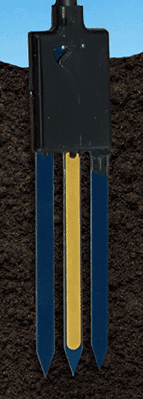
OPTIMIZE AN IRRIGATION SYSTEM
Your current commercial irrigation system most likely could use some optimization help. It is estimated that standard irrigation systems overwater anywhere from
30–300%, which results in countless gallons of wasted water and a hefty price tag on your water utility bill. Adding a
water management controller to your irrigation system allows you to save money and water, helping you become a
water conservation pro.
INSTALL SMART SENSORS
Adding smart sensors to your commercial irrigation system helps you conserve water by sensing
moisture,
rain, and
water flow and adjusting the watering cycle accordingly. As a commercial property owner, manager, or maintenance professional, adding these smart sensors to your irrigation system helps you
save big on your bill and in water usage.
RETHINK YOUR LANDSCAPING
Of course, everyone wants their commercial landscaping to look lush, beautiful, and inviting. The good news is that you can incorporate landscape options that are both appealing and water- and budget-friendly. Try planting plants that are native to your local area and look for ones that are drought-resistant/require little watering. You can also choose grass that is
water-wise and thrives on less water.
EVERYDAY WATER CONSERVATION
Water conservation doesn’t just have to happen on a big scale or in commercial businesses. There are many ways we can save water in our daily lives, including at home, in our diet, even in our transportation. With so many options for water conservation, we all have the ability to do our part in saving water.
There many simple things you can do in the comfort of your own home to decrease water usage and aid in water conservation, including:
- Check for leaks: Toilets and sinks can waste up to 100 gallons of water a day from even the smallest leak.
- Add plastic to your toilet tank: If you aren’t ready to upgrade to a low-flow toilet, adding an empty 1-liter bottle to your toilet tank can help to use less water per flush, saving both water and money on your utility bill. Throw some sand in the bottom of the bottle to help keep it weighed down in the toilet tank.
- Shorten shower time: We all love long, hot showers but they are very good for the environment or your wallet. Try shortening your showers to 5 minutes or less for the best results.
- Switch to low-flow shower heads: If you can’t give up your long showers, switching to a low-flow shower head could save around 2 gallons per minute during your shower.
- Turn off your faucet: When you’re shaving or brushing your teeth, you don’t need to leave the water running the whole time. Turn it off to save about 2 gallons of water per day.
- Run appliances when full: Running your dishwasher or washing machine without full loads actually wastes around 5 gallons of water per appliance.
- Keep drinking water in the fridge Instead of running the tap and waiting for the water to get cold, you can keep readily available cold water in the fridge, which could save around 300 gallons of water every month.
- Don’t defrost in water: If you have to defrost food for a meal, try to put it in the fridge overnight or use the microwave for faster defrosting. When you don’t run the food under the faucet, you could save about 150 gallons of water monthly.
WATER CONSERVATION IN THE YARD
Saving water outside is just as important as saving water inside. There are many water conservation tips that you can follow to slow the flow outside.
- Water early or late: When you water your lawn too close to peak heat times, you risk having that water evaporate quickly instead of adequately moisturizing your lawn. Aim to water in the early morning or late evening to use less water.
- Choose smart plants: Some plants do better with less water so if you add these to your yard, you can spend less time watering. This saves you money, time, and water in the long run.
- Use buckets instead of running water: When you can, fill up a bucket and use that water instead of leaving a hose continually running. This comes in handy especially when you are washing your vehicle.
WATER CONSERVATION IN YOUR DIET
Our bodies need water to survive and a lot of our cooking processes involve water so it seems counterproductive to save water in our diets. However, there are many changes we can make to have a
healthy diet while still conserving water.
- Eat more veggies: Store-bought or home-grown vegetables take less water to produce than meat or dairy products. So, eating more veggies actually helps conserve water in the long run.
- Minimize processed foods: As with meat and dairy products, a lot of water goes into making processed foods. Eating less of these in your diet helps use less water.
- Drink less coffee: Coffee production has one of the highest water contents in the beverage world. Try decreasing your coffee intake by one cup every day to help save more water.
WATER CONSERVATION IN TRANSPORTATION
The way we get around every day may not seem like it directly affects water usage but, surprisingly, it does. Saving water in our transportation system may not be the easiest task but there are still
simple things you can do to help.
- Drive less: It takes about ¾ of a gallon of water to drive one mile. So, the fewer miles you drive everyday, the fewer gallons of gas—and water—you use each day.
- Combine errands: If you have a lot of errands to run, try to combine them into one drive so you only have one long drive during the week instead of multiple smaller ones.
- Upgrade to a hybrid: When you’re ready to buy a new car, consider upgrading to a fuel-efficient hybrid vehicle. You’ll use less gasoline overall and if you upgrade to an electric vehicle, you won’t use any gas at all!
- Consider public transportation: Catching buses or riding a bike lowers the number of vehicles on the road every day. This helps decrease gasoline consumption as well as air pollution that can potentially contaminate fresh water.
WATER CONSERVATION FOR KIDS
As adults, we can teach children about the importance of water conservation and what they can do to help make a difference. There are a few simple tasks that children can tackle, including:
- Teaching kids that toilets are only for waste, not other objects.
- Rewearing clothes if they aren’t visibly dirty or obviously stinky to reduce how much laundry needs to be done.
- Reusing bath towels instead of treating them as single-use objects.
- Using a single glass or a reusable water bottle to avoid dirting multiple cups and having to run the dishwasher.
- Using old water to water plants instead of just dumping it out.
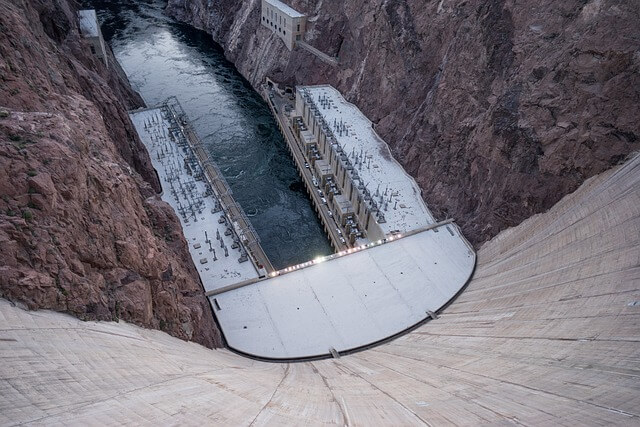
Rainwater for water conservation
One natural and easy way to save water is through harvesting rainwater. This is the process of collecting rain run-off from structures to save for later. You can collect rainwater in a simple barrel, invest in a larger collection and filtration system, or try a variety of
different techniques, depending on your needs.
- Surface runoff harvesting
- Rooftop rainwater harvesting
- Dams
- Underground tanks
- Rain saucers
- Water collections reservoirs
- Barrage
- Slopes
- Trenches
- Rain barrels
It is important to remember that there are specific rainwater collection laws in every state. You should know your
state’s laws and legislation surrounding rainwater harvesting before you start the process.
HOW TO USE HARVESTED RAINWATER
It is important to remember that there are specific rainwater collection laws in every state. You should know your state’s laws and legislation surrounding rainwater harvesting before you start the process.
- Agriculture
- Sewage
- Wastewater
- Oil pollution
BENEFITS OF HARVESTING RAINWATER
Since rainwater is a natural resource, it has many
advantages for both the environment and your wallet.
Rainwater is:
- Easy to maintain
- An independent water supply
- Sutiable for irrigation
- Supplemental in a drought
- Good for drinking and non-drinking purposes
Collecting and using rainwater also helps reduce your monthly water bill and decreases the demand for groundwater.
Overall benefits of water conservation
Making small changes in your daily life that only save a couple of gallons of water here and there may not seem like a lot but small changes made by lots of people add up quickly. The benefits of water conservation outweigh the minor inconvenience of making a conscious effort to save water.
SAVING THE PLANET
When we make the smart choice to work together to conserve the water that we do have, we’re helping
decrease water scarcity and ensuring that there is enough water for future generations. Additionally, if we don’t have enough water for all of our needs, we could face food scarcity as well. So water conservation not only saves the planet, it helps preserve our entire population.
SAVING MONEY
As we make small changes around our homes, businesses, and commercial properties, those
changes can stack up to big savings overtime. This decreases the amount of water bills we have to pay while also conserving water — it’s a win-win situation.
SAVING ENERGY
Since water and electricity can be a dangerous combination, it may seem weird that water usage has an effect on energy consumption but it does. Energy is used to heat water for cooking, bathing, laundry, cleaning, and other building operations. Additionally, as water is pumped in and out of the property, it requires additional energy. When you
decrease water usage, you’ll also be decreasing your energy usage.
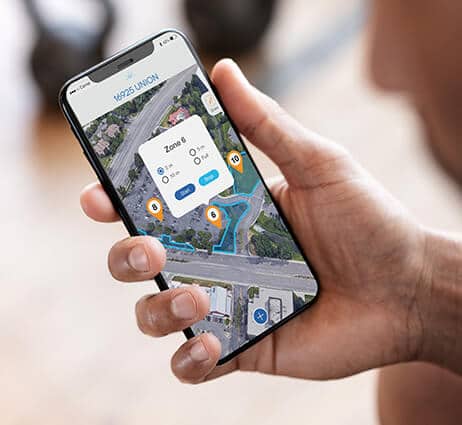
Smart Rain: The smart water conservation system
With all this talk of saving water, money, and the planet, you’re probably wondering how Smart Rain can help you achieve these goals. Here is how we do it.
AWARD-WINNING TECHNOLOGY
We’ve taken the smart water conservation technology to new levels by putting it in the palm of your hand. The Smart Rain SmartApp™ brings you 24/7 monitoring of every irrigation zone on your property.
The app gives you a comprehensive view of your entire irrigation system and includes:
- A dashboard view
- Interactive maps
- Dedicated reporting
- Supplemental in a drought
- Good for drinking and non-drinking purposes
You can connect to and control your water conservation system from anywhere, meaning you can update your water cycle, address issues immediately, and see how the irrigation system is functioning at any time. With this innovative app and forward-thinking technology, you can save hundreds of hours in labor, thousands in money, and millions in gallons of water.
Discover Our Smart TechnologyTHE SMARTCONTROLLER™
Working in conjunction with our SmartApp™, the Smart Rain SmartController™ is one of the most sophisticated, proprietary irrigation controllers on the market and is also one of the most innovative water conservation products on the market. This controller is capable of handling up to 48 irrigation zones and is set up to integrate seamlessly with our Smart Sensors. The SmartController™ is truly the brains of your water conservation system and makes lawn maintenance and water conservation a breeze.
When you want to take your water management system to the next level, you can use SmartController™ sensors for water flow, moisture, and rain.
- Flow sensor: This monitors how much water is flowing through each valve on your property and provides alerts if any areas experience high or low flow.
- Moisture sensor: Weather is unpredictable and can change frequently, which can affect the moisture levels in your soil. With this sensor, we can detect your current moisture levels and only water enough to bring the soil back up to optimal levels.
- Rain sensor: If it’s already raining, there’s no need to be watering your property. This sensor can detect coming changes of rain and adjust your watering schedule accordingly. Additionally, if it does start to rain while the system is watering, this sensor can turn off the water flow to prevent water waste.
Frequently asked questions
WHAT IS THE BEST WAY TO CONSERVE WATER IN THE SUMMER?
There are many tips to conserving water in the summer, including watering outside the heat of the day and using a smart irrigation system.
Discover Summer Conservation Tips
HOW CAN I MAKE THE MOST OF MY WATER BUDGET WHILE STILL SAVING WATER?
The best way to have a beautiful, lush lawn while still conserving water is to optimize your current irrigation system to maximize efficiency and minimize water waste. This helps prevent overwatering or watering on rainy and snowy days.
Protect Your Water Budget
DOES A WATER IRRIGATION SYSTEM ACTUALLY SAVE ME MONEY?
Yes. If you are a commercial property owner, property manager, landlord, or maintenance professional, a water irrigation system is the smart choice for you. With the Smart Rain SmartController™, you can automatically access your system from anywhere. This allows you to stop watering in inclement weather, pinpoint leaks or damage immediately, and determine if you are overwatering in any areas. All of these actions help you reduce water usage and save on watering costs.
See How Water Irrigation Systems Save Money
HOW DO I STEP UP MY WATER CONSERVATION SYSTEM?
With the Smart Rain SmartSaver™ program, we’ve created state-of-the-art technology that automatically helps you cut back on water consumption on your commercial property. Our goal is to help you conserve water and save money at the same time.
Become a Water Conservation Genius
CAN I MAKE MY LANDSCAPING MORE WATER-FRIENDLY?
Absolutely! We call this “water-wise landscaping.” This includes using native plants that are better suited for your specific environment, planting grass that suits your climate, and more.
Get a Water-wise PropertyFun water facts
At Smart Rain, we love water and helping you save it through water conservation. We also know that water is fun and fascinating so we’ve found some fun water facts for you!
- Water can dissolve more substances than any other liquid, including sulfuric acid
- Water weighs roughly 8 pounds per gallon
- 70% of the human brain is water
- Water expands by 9% when it freezes
- There is the about the same about of water on Earth now as there was millions of years ago
- Coffee takes twice as much water to produce compared to tea
- Since water is naturally recycled, you could technically drink water from the dinosaur era
- Pure water has no smell and no taste
- It takes 3,170 gallons of water to make 1 pound of chocolate
Make smart water conservation choices
You now have the knowledge, tips, and methods you need to implement smart water conservation habits into every aspect of your life. If you’re ready to take the next smart step in water conservation by implementing a water management system on your commercial property, Smart Rain is ready to help. With our passion for water conservation, innovative technology, and state-of-the-art irrigation management system, you’ll be saving money, water, and the planet in no time.
Request Demo



